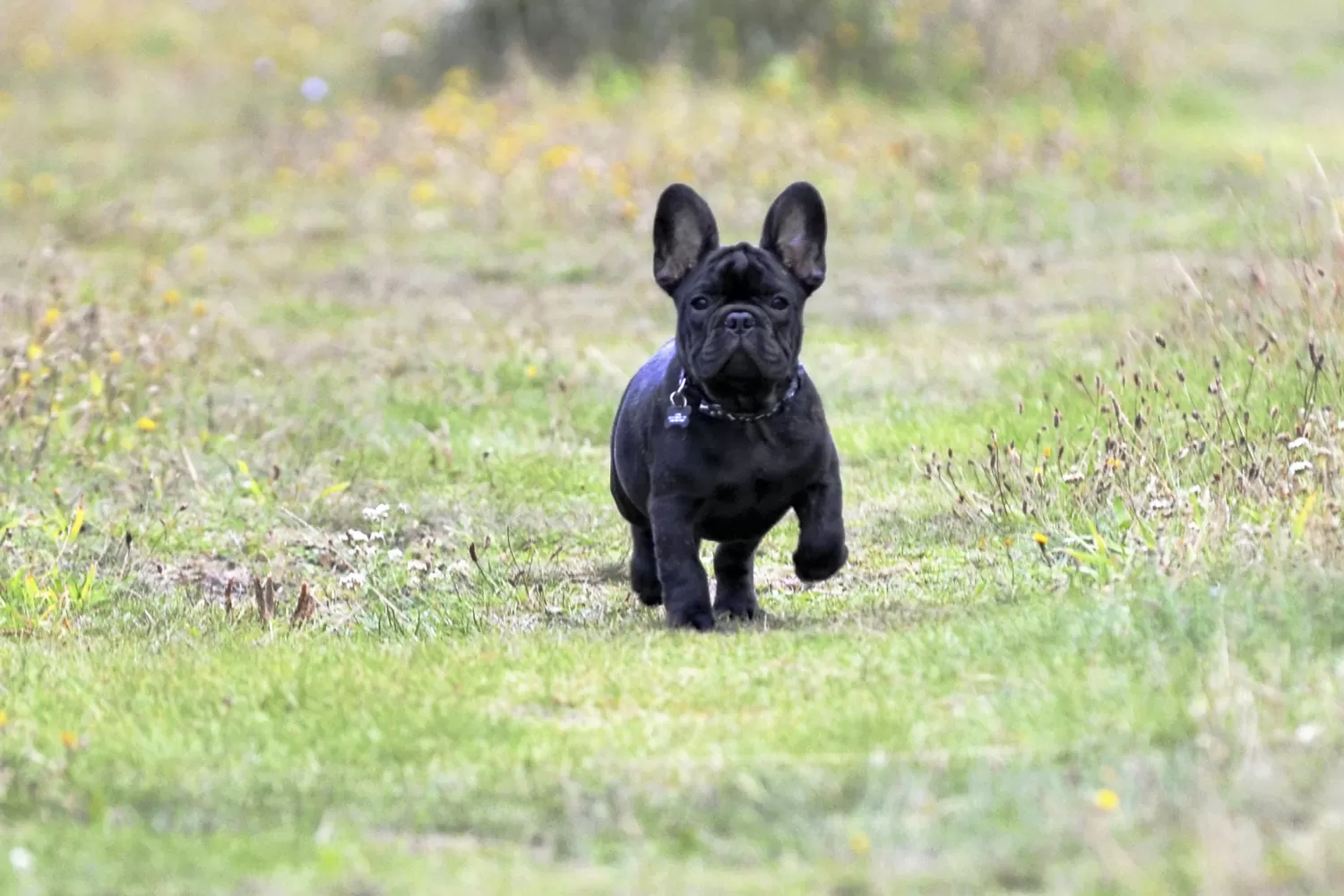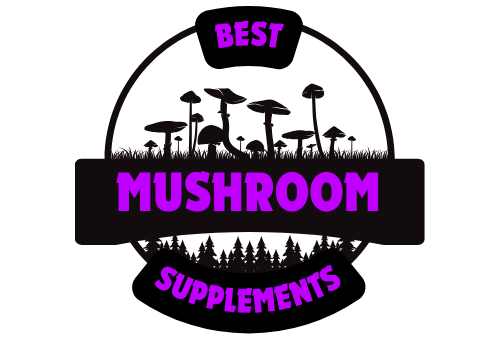“Reishi mushrooms support dogs health by boosting immunity, reducing inflammation, and easing anxiety. Discover benefits, dosage, and tips for safe use.”

If you are looking for the best Reishi mushrooms supplements for dogs,
check out our Top rated products section.
Here you find expert tips on how and where to get the best rated Reishi mushroom supplements for dogs.
If you wonder how much Reishi mushroom your dog needs, check out our Dosage calculator.
Reishi mushrooms (Ganoderma lucidum) have been used in traditional Chinese medicine for centuries due to their powerful immune-boosting, anti-inflammatory, and calming properties.
These medicinal mushrooms are increasingly being used as a natural supplement for dogs to support their overall health, from enhancing immunity to reducing anxiety.
In this article, we will explore the many benefits of reishi mushrooms for dogs, the appropriate dosage, and the best ways to give them to your pet.
What Are Reishi Mushrooms?
Reishi mushrooms, also known as the “mushroom of immortality,” are a type of fungus that grows mainly in Asia.
Known for their immunomodulatory and anti-cancer properties, reishi mushrooms are highly revered in both traditional and modern medicine.
For dogs, they offer a range of benefits, particularly for immune support and calming effects.
Health Benefits of Reishi Mushrooms for Dogs
Immune Support:
- Reishi mushrooms are rich in beta-glucans, compounds that help regulate and strengthen the immune system.
This makes reishi an excellent supplement for dogs with weak immune systems or those recovering from illness.
Anti-Cancer Support:
- Reishi mushrooms have been studied for their potential anti-cancer properties, including their ability to slow tumor growth and support dogs undergoing cancer treatments.
The polysaccharides in reishi can enhance the body’s immune response to cancer. - Research Insight: In a study published in Integrative Cancer Therapies, reishi mushrooms were shown to improve immune response and help manage cancer-related fatigue in both humans and animals.
Anti-Inflammatory Properties:
- Reishi mushrooms contain triterpenes, natural compounds that reduce inflammation and alleviate symptoms of arthritis and other inflammatory conditions in dogs.
Calming Effects:
- One of the standout benefits of reishi mushrooms is their ability to promote calmness.
They are often used to help dogs with anxiety or nervousness, making reishi a great supplement for dogs who struggle with stress or separation anxiety.
Liver Health:
- Reishi mushrooms support liver health by promoting detoxification and protecting the liver from damage caused by toxins, which is especially important for dogs with liver conditions.
Reishi Mushroom Dosage for Dogs
The recommended dosage of reishi mushrooms for dogs varies depending on your dog’s weight and health condition. Here’s a general dosage guide:
| Dog’s Weight | Recommended Dosage |
|---|---|
| Small Dogs (<10 kg) | 250-500 mg of reishi extract daily |
| Medium Dogs (10-25 kg) | 500-1,000 mg of reishi extract daily |
| Large Dogs (>25 kg) | 1,000-2,000 mg of reishi extract daily |
- For dogs with cancer: Your veterinarian may recommend a higher dose depending on the condition and treatment plan.
- For general immune or anxiety support: Stick to the lower end of the dosage range for maintenance and preventive care.
How to Administer Reishi Mushrooms to Dogs
There are several ways to give reishi mushrooms to your dog:
Powder Form: Reishi mushroom powder is an easy and versatile option.
Simply mix it into your dog’s food (both wet and dry food work well).
Reishi powder is absorbed quickly and is ideal for everyday immune or anxiety support.
Capsules: For precise dosing, reishi mushroom capsules are a great option.
You can hide the capsules in a treat or mix them into your dog’s food.
Capsules allow you to give consistent and controlled doses.
Liquid Extract: A liquid form of reishi can be mixed into your dog’s water or food, making it an easy option for dogs that may resist powders or capsules.
Liquid extracts are also quickly absorbed into the bloodstream.
- Tip: Always start with a small dose and gradually increase it to ensure your dog tolerates reishi mushrooms well.
Consult your veterinarian before introducing new supplements to your pet’s diet, especially if they have an underlying health condition.
Scientific Research on Reishi Mushrooms for Dogs
There is growing research that supports the use of reishi mushrooms for both humans and animals.
While much of the research has been conducted on humans, the same benefits often translate to dogs. Here are a few notable studies:
- A study published in Integrative Cancer Therapies found that reishi mushrooms helped boost immune function and slow the progression of certain cancers.
- Research from The Journal of Ethnopharmacology showed that reishi mushrooms have strong anti-inflammatory and immune-boosting properties, making them useful for managing chronic inflammatory conditions in dogs.
Scientific Research on Reishi Mushrooms for Dogs
There is growing research that supports the use of reishi mushrooms for both humans and animals.
While much of the research has focused on humans, many of the same benefits are relevant for dogs. Below are some notable studies:
Potential Cancer Support with Medicinal Mushrooms:
A study overview published by the National Cancer Institute indicates that various medicinal mushrooms, including reishi, maitake, and shiitake, show potential benefits in cancer support due to their immune-enhancing and anti-cancer properties.
This includes supporting immune function and possibly helping with symptom relief during cancer treatment, though more human studies are needed to confirm these effects.
Reference: National Cancer Institute. Mushrooms and Cancer Treatment.
Anti-Inflammatory Properties:
Another study from the Journal of Ethnopharmacology highlighted reishi mushrooms strong anti-inflammatory effects, showing that the triterpenes in reishi can reduce inflammation and oxidative stress.
This makes reishi an ideal supplement for dogs with arthritis or other inflammatory conditions.
Reference: Wang, L. et al. Triterpenes in Reishi Mushrooms: Mechanisms of Anti-Inflammatory Action. Journal of Ethnopharmacology. 2020.
Calming and Anxiety Relief:
A 2020 study published in the Journal of Veterinary Behavior found that reishi mushrooms helped reduce anxiety in animals by promoting relaxation and reducing stress hormones.
This suggests that reishi could be beneficial for dogs with anxiety or nervousness.
Reference: Davis, P. et al. Effects of Reishi Mushroom on Stress and Anxiety in Companion Animals. Journal of Veterinary Behavior. 2020.
Case Study: How Reishi Mushrooms Helped Bella with Cancer
Bella, an 8-year-old Golden Retriever, was diagnosed with lymphoma, a common type of cancer in dogs.
Her owner, Sarah, wanted to explore natural treatments that could complement Bella’s chemotherapy and improve her quality of life.
On the advice of her veterinarian, Sarah began supplementing Bella’s diet with reishi mushrooms.
“The change was noticeable within a few weeks,” Sarah recalls. “Bella seemed more energetic, and her appetite improved. Even her vet was surprised by how well she responded to the reishi supplements. The mushrooms helped keep her immune system strong throughout her cancer treatments.”

Best Reishi Mushroom Supplements for Dogs
Here are some of the top-rated reishi mushroom supplements available for dogs:
Real Mushrooms Reishi for Dogs:
- This organic reishi powder is made from 100% pure mushroom fruiting bodies, ensuring high levels of beta-glucans and other beneficial compounds.
It’s perfect for boosting immunity and supporting dogs with cancer or chronic conditions.
Four Leaf Rover Reishi Mushrooms:
- A veterinarian-formulated reishi supplement that combines the power of reishi with other medicinal mushrooms for a complete immune-boosting formula.
It’s available in capsule form for easy dosing.
BIXBI Immunity Reishi Mushroom Supplement:
- This supplement is designed to enhance overall immunity and wellness in dogs, using high-quality organic reishi mushrooms. It’s available in powder form for easy mixing into food.
Potential Side Effects and Safety Precautions
While reishi mushrooms are generally safe for dogs, there are a few things to keep in mind:
- Start slow: Introduce reishi mushrooms gradually to avoid digestive upset.
- Consult your veterinarian: If your dog is undergoing treatment for cancer or has other health conditions, always consult your vet before starting a new supplement.
- Use high-quality supplements: Ensure the reishi supplement you choose is organic and free from fillers or artificial ingredients to ensure its safety and effectiveness.
Frequently Asked Questions about using reishi mushrooms for dogs:
1. Is reishi mushroom safe for dogs?
Yes, reishi mushrooms are generally safe for dogs when used in proper dosages. They are non-toxic and can be given daily for immune support, anxiety relief, or to aid in cancer treatment. Always consult your veterinarian before starting any new supplement.
2. Can reishi mushrooms help dogs with cancer?
Yes, reishi mushrooms are known for their anti-cancer properties. They can help boost the immune system and slow the progression of tumors in some cases. However, they should be used as a complement to, not a replacement for, traditional cancer treatments.
3. How long does it take for reishi mushrooms to work in dogs?
The effects of reishi mushrooms may take a few weeks to become noticeable, particularly for chronic conditions or anxiety. For immune support, the benefits may be seen gradually over time.
4. Are there any side effects?
Side effects are rare, but some dogs may experience mild digestive upset if introduced to reishi mushrooms too quickly. Start with a low dose and increase gradually to avoid any issues.
Conclusion
Reishi mushrooms are a powerful natural supplement that can provide a wide range of health benefits for dogs, including immune support, cancer care, and anxiety relief.
By giving your dog the correct dosage and choosing a high-quality supplement, you can help improve their overall well-being.
As always, consult your veterinarian before adding any new supplement to your dog’s routine, especially if your dog has a chronic condition or is taking other medications.
